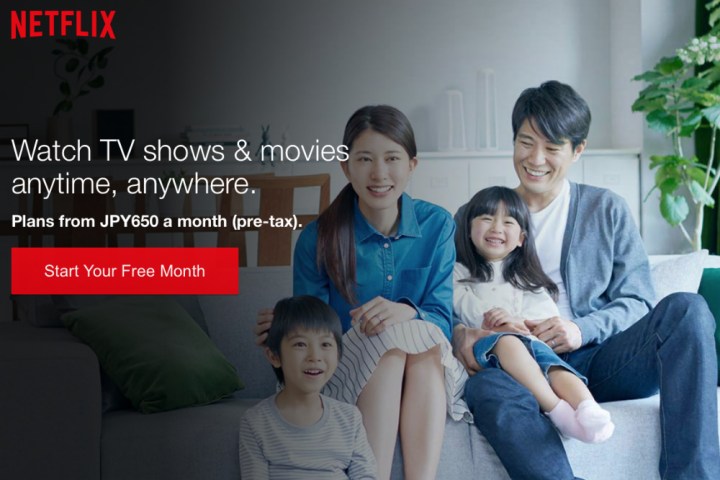
The video streaming giant rolled out its service in the Asian nation on Wednesday, offering subscribers a month’s free trial or the option to dive straight in with various packages.
The three options offered in Japan are the same as those in the U.S.: Basic costs 650 yen ($5.40) a month, Standard 950 yen ($7.90), and Premium 1,450 yen ($12).
Reports suggest Netflix is taking a slightly different approach in Japan in an effort to crack what can sometimes be a difficult market. The strategy involves offering a greater proportion of local TV shows and movies than subscribers receive in other countries.
Whereas the streaming company’s content usually consists of about 20 percent of local-made programming, in Japan this is being pushed to 40 percent. The decision appears to be based on current viewing trends in a country whose main channels generally see fewer foreign broadcasts compared to many other nations.
Despite offering more local content to Japanese viewers, Netflix is nevertheless thought to be planning a vigorous marketing campaign in a bid to spark interest in its own original shows as well as other major productions from the U.S. and beyond.
A quick scroll down Netflix’s main page for Japan clearly reveals its increased focus on local programming, though there is of course plenty of content from overseas, too.
Netflix rivals in Japan include the likes of local providers Tsutaya and Yahoo subsidiary GyaO, while Amazon is also set to launch its Prime Instant Video service in the country some time this month.
In an effort to get its new service off to the best possible start, California-based Netflix has done a deal with cell phone and Internet giant SoftBank offering easy ways for its 37 million mobile customers to pay Netflix subscription fees. The Japan-based company will also start pre-installing the video streaming app on its smartphones.
Japan is the latest launch for Netflix as it continues its seemingly unstoppable global expansion. Recent additions to its growing list of markets include France, Belgium, Luxembourg, Austria, Switzerland, Germany, Australia and New Zealand.
The company also has in its crosshairs Spain, Italy, Portugal and, of course, Japan’s neighbor, China.
Netflix currently operates in about 80 countries or regions around the world, though it says it’s aiming for a total of 200 within the next couple of years. The way things are going, few people are daring to question its bold ambition.



